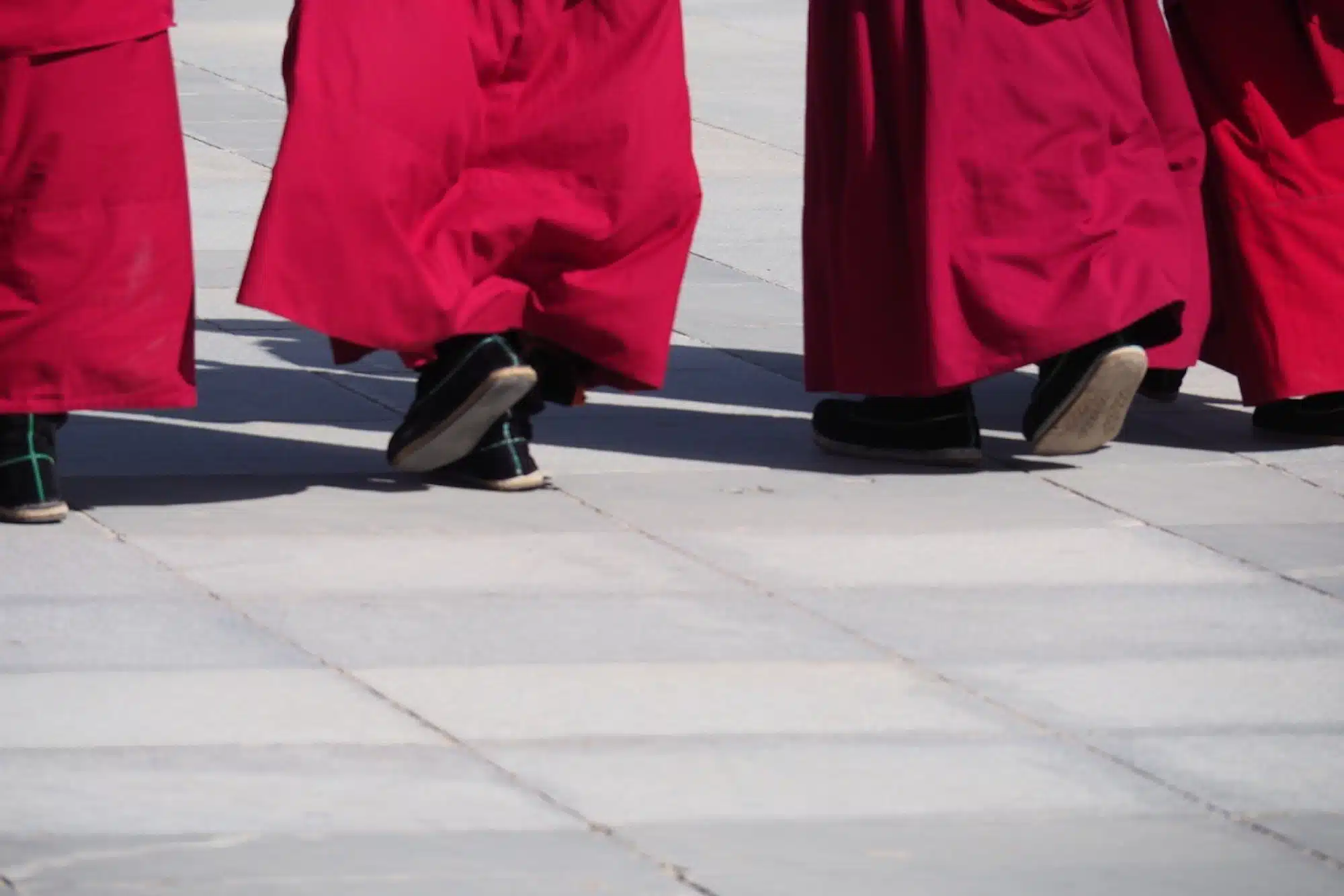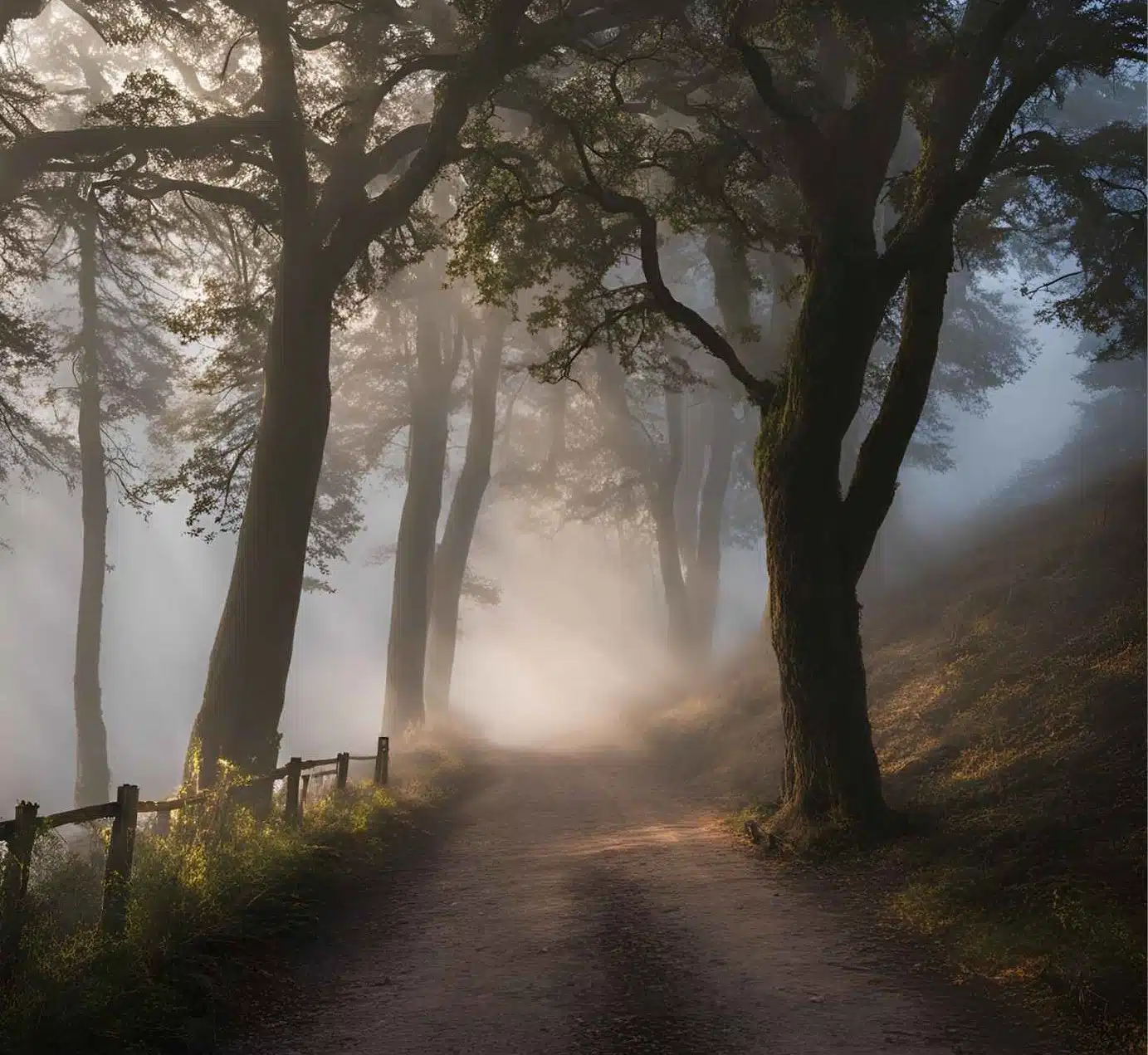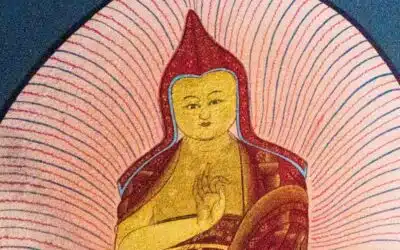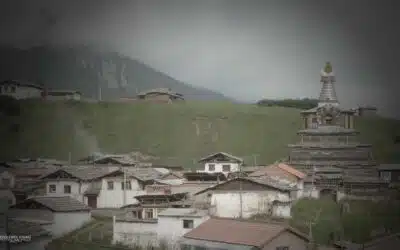One Step at a Time…

Written By Denis Martin
Blog | Dzogchen Testimonials
In “One Step at a Time…” Denis attempts to confront his quest for experiences with the teachings of two great contemporary Dzogchen masters.
Series: The Dzogchen path
One Step at a Time…
“One step at a time….
leaving experiences behind us”.
Caught up in my search for ‘foundational’ experiences (which mark the entry point or a fundamental shift on the path), I began to question my tendencies and expectations regarding such a search on the path proposed by Dzogchen. So I immersed myself in the teachings of two great contemporary masters of Dzogchen in order to gain some clarity. Here’s what I’d like to share with you in a falsely confident tone…
...my tendencies and expectations regarding foundational experiences
(the use of ‘we’ is a figure of speech).
Haven’t we all, at some point in our existence limited by a body and the constraints of space and time, felt a fundamental desire for transcendence ? This quest for profound experiences seems to respond to an intrinsic human need to rise above ourselves and our immediate reality, to touch something vaster, something absolute.
Spiritual experience, whether manifesting as an intense sensation, a vision, or a transcendent state, is frequently sought after for its its ability to produce a sense of oneness, a profound peace, or an awakening to a higher reality.
In the current context, this quest for transcendent experiences can be easily satisfied by a wide variety of proposals, depending on our aspirations of the moment. Some people will be more attracted to traditional spiritual paths, while others will prefer simplified modern approaches. A spiritual path such as Dzogchen, which offers a remarkable wealth of meditation practices, visualization techniques and other methods that enable a variety of experiences, is certainly inspiring.
“This is the way we walk the (gradual) path of Dzogchen “One step at a time …leaving experiences behind us” until the direct experience of our own nature, the state of Great Perfection, introduces itself to us.”
Regardless of the path chosen, at some point in the journey, there is a desire to have certain experiences, if possible foundational ones. There is also a tendency to believe that these experiences must be obtained as quickly as possible, as otherwise the effectiveness of the spiritual practice may be compromised. This is particularly relevant given the prevalence of testimonies attesting to such experiences.
In the absence of a transcendent experience, despite years of spiritual practice, we may be inclined to explore alternative paths or to accumulate a variety of approaches. On the other hand, we might become complacent about our own experiences, thinking that we’ve already achieved a high degree of wisdom and fulfillment.
In any case, by focusing on experiences, we sometimes forget to (re-) consider (and regularly return to) the deeper motivation that leads us to follow a spiritual path.
…attempts at clarification, accompanied by excerpts from the teachings of two Tibetan Dzogchen masters of the twentieth century, namely Kyabje Dudjom Rinpoche and Namkhai Norbou Rinpoche [1]
When we refer to the (gradual) path of the Great Perfection, we often emphasize that it is not a dogmatic path or one of belief in an external transcendent reality, and that, in order to tread it, it is necessary to apply a certain number of “techniques” (meditation, visualization, etc.) that will gradually lead us to fundamental experiences.
However, the Dzogchen teachings also emphasize the importance of study and reflection as an essential foundation for practice. It would appear, therefore, that applying methods and wanting to “practice” Dzogchen without the foundations of the teachings, observation and a deep understanding of how the mind works, would be of little use.
Conversely, remaining fixed in intellectual knowledge and constantly commenting on our practice and experiences, will not bring us any further realization. As Namkhai Norbu Rinpoche clearly teaches, “we can have an infinite variety of types of experience linked to practice, but if they remain at the level of mental judgment they do not lead us towards true knowledge, but become obstacles in themselves”. [2]
Although experiences punctuate the path and serve as necessary landmarks, they should not be pursued as an end in themselves. By forming an attachment to these experiences, we may become dependent on specific sensations or manifestations, leading to a confusion between the path itself and temporary emotional or mental states. Namkhai Norbu Rinpoche provides a clear characterization of these states. “If a practitioner remains absorbed for days on end in a state of pleasure or emptiness, without maintaining the presence of contemplation, it’s like falling asleep in an experience. This occurs when experiences are erroneously identified as the ultimate destination.” **
Dzogchen masters often warn against these states of confusion, and also regularly emphasize that experiences are transitory phenomena, and therefore illusory. Even when Dudjom Rinpoche refers to the three fundamental experiences of bliss, clarity and non-conceptuality, he reminds us that: “(…) if one is capable of not attaching oneself to these so-called higher experiences, more than to a hair’s breadth, without expecting anything, without being disappointed, then such an attitude will cut through the deviations”. **
Intellectual grasp of practice and attachment to experience are therefore two important pitfalls on the path to which we must remain vigilant. Should our vigilance begin to wane, we may rekindle it by recalling Dudjom Rinpoche’s illuminating allegories on this subject: “The teachings of the Great Perfection tell us: understanding is like a patch that will one day fall off. Experience is like the fog that will dissipate on its own”. **
This is the way we walk the (gradual) path of Dzogchen “One step at a time …leaving experiences behind us” until the direct experience of our own nature, the state of Great Perfection, introduces itself to us.
The introduction to the primordial nature of our mind is therefore the foundational experience in the Dzogchen tradition. From the point where we “Meet [our] essential nature in the moment ”, we move from a state of ignorance to unshakable confidence in our own nature, from intellectual understanding to primordial knowledge, from analysis to direct experience. This turning point is once again beautifully illustrated by Dudjom Rinpoche: “(…) at some point, through devotion and other means, experience will turn into realization, and you will directly observe awakened consciousness as a hat on your head”. **
However, we must not forget that such an experience occurs under specific and unique circumstances, when we are ready for the lightning bolt of compassion !
[1] Dudjom Rinpoché, La grande perfection ou Dzogchen, Instructions spirituelles. Traduit du tibétain par Patrick Mandala. Éd. Les Deux Océans, Paris 2020. (Quoted extracts, pages 99-100)
Namkhaï Norbu Rinpoché, Dzogchen, L’état d’auto-perfection. Traduit de l’italien par Arnaud Pozin. Éd. Les deux océans, Paris 2000. (Quoted extracts, pages 82-83) BACK
[2]**] free translation of the French version BACK
More Posts
Phenomena
"Phenomena" is the second entry in a new category designed to improve understanding of essential Dzogchen words and concepts.
The Story of the First Masters: Manjushrimitra
We continue the Stories of the First Dzogchen Masters with Manjushrimitra, who structured the verses of Dzogchen into three series.
Diebu
In this article, “Diebu,” Mila Khyentse discusses the places of the lineages, particularly that of Diebu.





